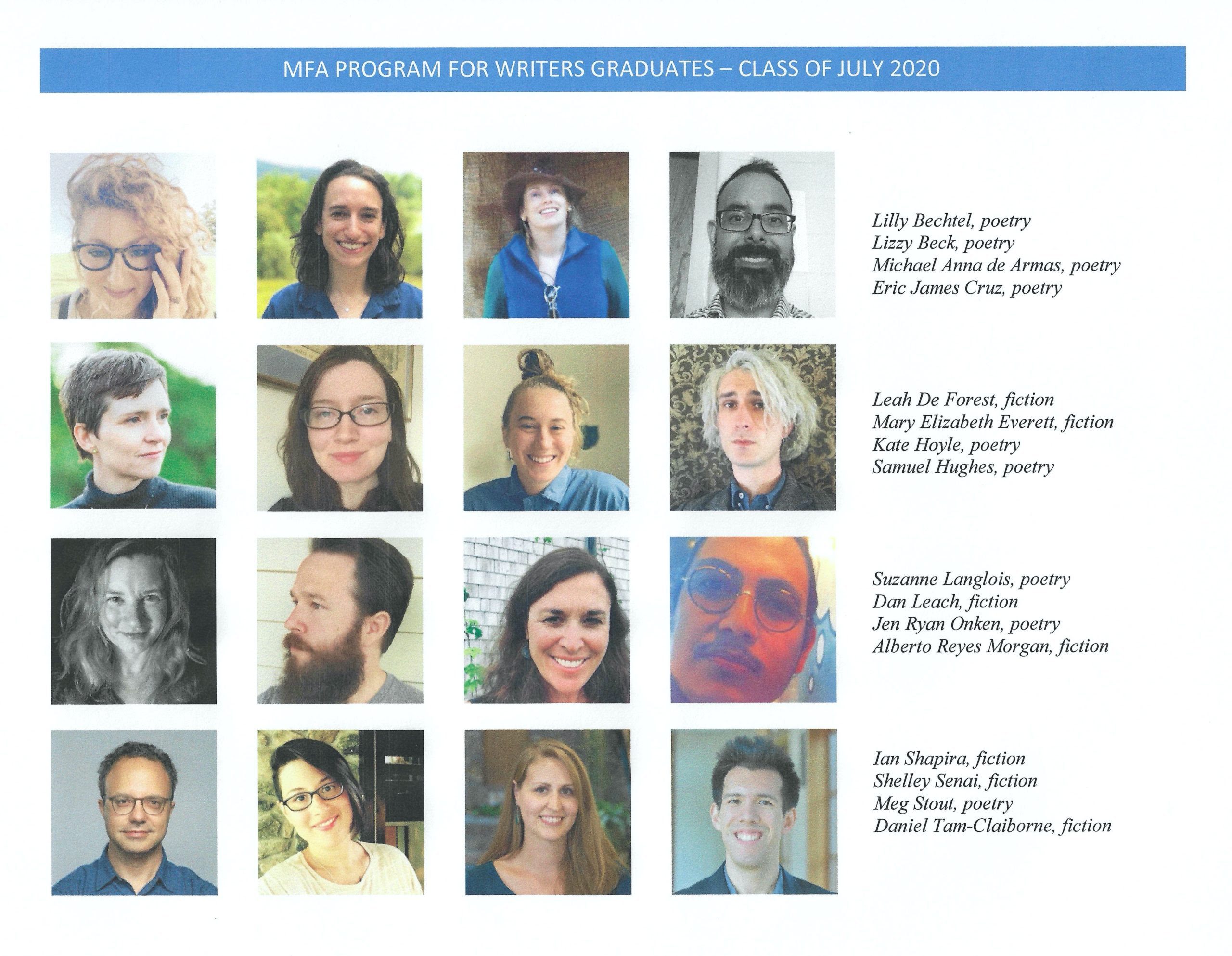Several members of the MFA Program for Writers faculty have been recognized with prestigious fellowships and honors this spring. Poets Sandra Lim and Connie Voisine and fiction writer Laura van den Berg, all veteran faculty of our program, are among this year’s 184 recipients of Guggenheim Fellowships. 2017 fiction alumna Laura Otis was also awarded […]
Mia Alvar
Lesley Nneka Arimah
Sally Ball
Robert Boswell
Karen Brennan
Christopher Castellani
Sonya Chung
Daisy Fried
Brooks Haxton
David Haynes
T. Geronimo Johnson
Christine Kitano
Dana Levin
Maurice Manning
Matthew Olzmann
Peter Orner
Hanna Pylväinen
Martha Rhodes
Nicole Sealey
Debra Spark
Lysley Tenorio
Peter Turchi
Alan Williamson
The MFA Program for Writers is delighted to announce the faculty for the summer 2020 semester:
Kaveh Akbar
Debra Allbery (Director)
Sally Ball
Robert Boswell
Karen Brennan
Jamel Brinkley
Christopher Castellani
Sonya Chung
Angela Flournoy
Brooks Haxton
David Haynes
Amaud Jamaul Johnson
Christina Kitano
Dana Levin
Maurice Manning
Alix Ohlin
Matthew Olzmann
Peter Orner
Joan Silber
Debra Spark
Peter Turchi
Alan Williamson
Congratulations to the Winter 2020 graduates of the MFA Program for Writers:
Sarah Cypher
Jonathan Hadas Edwards
Sonja Johanson
Steven Lane
Hannah Markos
Erin Osborne
Margaret Ray
Amanda Shaw
Robert Matthew Taylor


